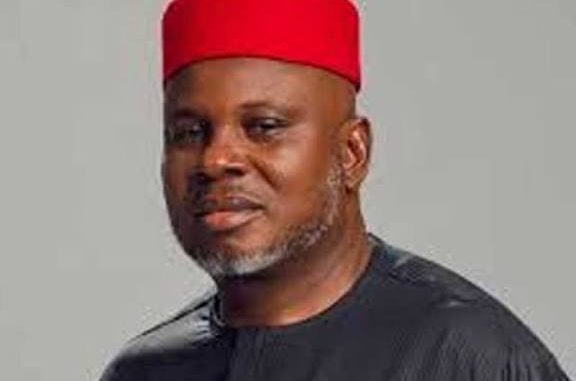
Anambra State stands at a critical juncture in its developmental trajectory. Despite receiving unprecedented resource allocation under the Bola Ahmed Tinubu administration—quadruple what the last three administrations received in 19 years—the state’s performance under Governor Chukwuma Soludo has been deeply concerning. The recently released 2025 State Performance Index starkly illustrates this decline, with Anambra plummeting from 8th position in 2024 to 34th out of 36 states—a precipitous fall of 26 positions representing one of the steepest declines in the index.
This dramatic ranking decline reflects systemic failures across multiple governance indicators. In Education and Infrastructure, Anambra ranked a distant 33rd relative to population size, indicating substantial gaps in educational facilities and resources. Capital Expenditure placed the state in 33rd position for per capita capital spending, suggesting severely limited reinvestment in critical infrastructure despite the massive federal allocations received.
Public Health Delivery, a cornerstone of effective governance, witnessed the state lagging at 30th place. Most damning is the “State Attractiveness” metric, where Anambra was identified among the least preferred destinations for relocation, sharing this dubious distinction with Bayelsa and bandit-ridden Zamfara states. Perhaps most telling, despite the state’s immense potential and human capital, Anambra has failed to attract a single dollar in foreign direct investment since Soludo’s administration began.
Security remains paramount across southeastern Nigeria, yet Governor Soludo’s approach has been particularly troubling. While counterpart governors have deployed comprehensive security strategies, Soludo has relied on deploying untrained youths as his answer to the security conundrum. These operatives, lacking proper training and oversight, have been documented harassing innocent citizens and denigrating women through degrading searches. This approach has transformed Anambra into what resembles Hobbes’s description of life as “nasty and brutish.”
Governor Soludo’s development philosophy raises serious questions about resource allocation. An academic leader touting a refurbished New Government House and Amusement Park as important to the state’s development index, while neglecting to build power plants that could serve Anambra’s industrial and commercial capacity, represents a fundamental misunderstanding of development priorities. States like Akwa Ibom have demonstrated the importance of addressing energy poverty through strategic power projects—a lesson seemingly lost on the current administration.
The Ukachukwu Alternative
Prince Dr. Nicholas Ukachukwu (MFR) represents a dialectical opposite to the current technocratic model that has failed Anambra. While he may not possess the academic hauteur of his opponent, history demonstrates that brilliant administrators were often not intellectuals in their own right, yet they achieved marvels where intellectuals failed. What benefit derives from having an intellectual governor whose theoretical frameworks have consistently failed to uplift Anambra society?
Ukachukwu’s approach emphasizes practical problem-solving, stakeholder management, and resource allocation wisdom—qualities essential for effective governance. His track record speaks volumes: aside from his tenure as Chairman of Abuja Municipal Area Council and four years as a Representative member, no politician in the state, save the late Senator Ifeanyi Ubah, has touched lives like Ukachukwu has consistently done.
His selection of Senator Uche Ekwunife as running mate further demonstrates strategic political wisdom, creating a formidable ticket that has clearly unsettled the current administration, as evidenced by recent smear campaigns—the desperate lurch of a failed administration running scared of being voted out.
Ukachukwu’s manifesto presents a practical roadmap for Anambra’s recovery. Short-term actions within 6-12 months would include emergency infrastructure audits and quick-win projects, comprehensive governance system reviews with immediate reforms, intensive stakeholder engagement to identify priority areas, and strategic budget reallocation to address critical gaps.
Medium-term strategies spanning three years would launch comprehensive infrastructure development programs, implement civil service reform and capacity building initiatives, establish robust public-private partnership frameworks, and deploy performance monitoring and evaluation systems.
The long-term vision over 3-5 years aims to position Anambra among Nigeria’s top six performing states, achieve sustainable improvement across all performance indicators, and establish the state as a model for governance excellence in the Southeast region.
Rather than focusing solely on academic credentials or political rhetoric, Anambra voters should examine concrete proposals, demonstrated competence, and alignment between stated priorities and citizen needs. Key questions include: What specific problems will be prioritized and why? How will limited resources be allocated among competing needs? What mechanisms will ensure accountability and transparency? How will different segments of society benefit from proposed policies? What is the candidate’s track record of actual accomplishments?
Anambra’s previous 8th position demonstrates the state retains capacity for better performance. However, this requires leadership that understands that compassion for the downtrodden and welfare of the people should be the desideratum of good governance. The democratic process works best when citizens have access to accurate information about candidates’ records, realistic assessments of policy proposals, and opportunities to hold leaders accountable for results.
The 2025 State Performance Index results expose the fundamental inadequacy of the current administration and make a compelling case against a second term for Governor Soludo. What Anambra needs now is someone whose understanding of good governance centers on practical results rather than theoretical frameworks.
The Ukachukwu/Ekwunife ticket offers exactly this—a leadership team with demonstrated capacity to deliver tangible improvements in security, infrastructure, economic opportunities, and quality of life. The people of Anambra deserve better than the current decline. The time for excuses has passed; what’s needed now is decisive action to reverse this alarming trajectory and restore the state to its rightful place among Nigeria’s best-performing states.
Ultimately, citizens deserve leaders who can deliver results. Whether such effectiveness comes from intellectual analysis or practical experience matters less than actual achievements. Prince Dr. Nicholas Ukachukwu (MFR) represents the pragmatic leadership Anambra desperately needs to reclaim its developmental potential and secure a prosperous future for all its citizens.
Igboeli Arinze is the Zonal Publicity Secretary of Anambra APC.
